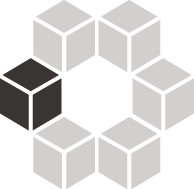Problem Solving
6 Problem Solving Skills That Drive Achievement

- Defines problems by considering all potential parts and related causes.
- Gathers and organizes relevant information about a problem from multiple sources.
- Generates potential solutions to a problem, seeking and leveraging diverse perspectives.
- Identifies alternative ideas/processes that are more effective than the ones previously used/suggested.
- Evaluates the advantages and disadvantages associated with each potential solution identified for a problem.
- Selects and implements best solution based on evaluation of advantages and disadvantages of each potential solution.
NOTE: Problem Solving is a process therefore the skills in this building block are written in order of implementation.
Main Message
Identifying problems and finding solutions is a process. Due to the procedural nature of the problem solving process, often teaching problem solving gets relegated to the fields of math and science. Where in reality, problem solving processes are part of every decision. Sometimes a person can cycle through the entire process subconsciously in seconds, sometimes more methodically over the course of a planned activity. The process can be applied to a wide range of personal, social, economic issues as well as typical academic and technical subject matter. Making this process transparent to youth in all settings will habituate problem solving as a core adaptive skill.
Aliases
Terms often used represent these skills:
Analytical
Cognitive Process
Cognitive Strategies
Creative
Critical Thinking
Decision Making
Expert Thinking
Information Management
Innovative
Judgment
Process Oriented
Strategic Thinking
Reasoning
Troubleshooter